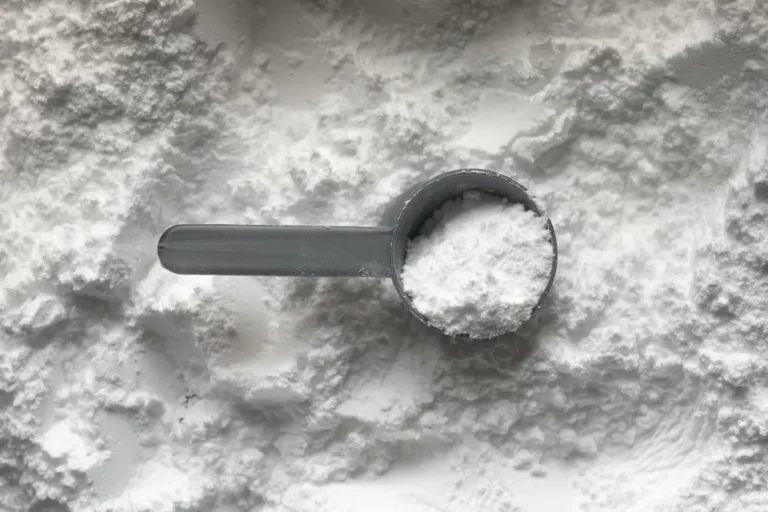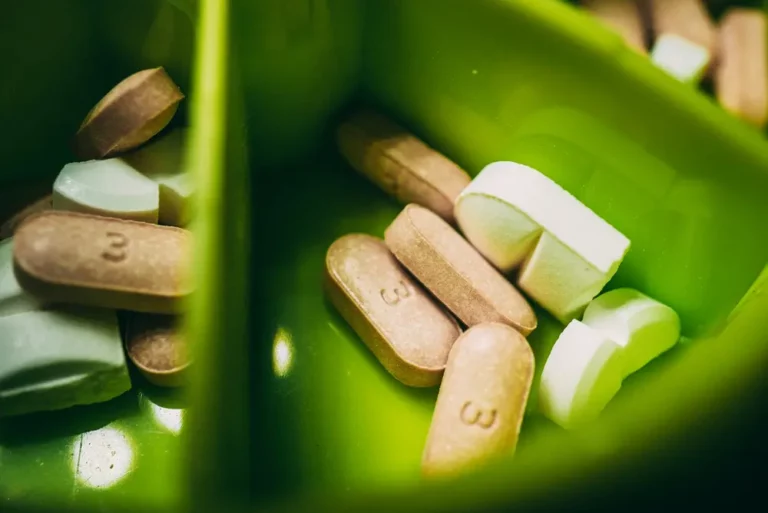Does Creatine Dehydrate You? Myths & Hydration Tips
I’ve always been curious about the myths and truths surrounding creatine, especially the big question: does it dehydrate you? With so much conflicting advice out there, it’s tough to separate fact from fiction. So, I decided to dive deep into the research to find out what was really going on.
Turns out, the relationship between creatine and dehydration isn’t as straightforward as some might think. Despite the common belief that creatine could leave you parched, recent studies suggest otherwise. Let’s unpack what the science says and put some of these dehydration myths to bed, shall we?
Understanding Creatine and Hydration
Navigating through the dense forest of misconceptions about creatine and hydration has been quite the journey. I’ve rummaged through countless studies, aiming to shed some light on how creatine actually interacts with our bodies, particularly in terms of hydration. Let’s dive deeper and figure out what’s going on beneath the surface.
How Creatine Functions in the Body
Firstly, it’s crucial to understand what creatine is and how it functions in our bodies. Creatine is naturally produced by our liver, kidneys, and pancreas, and it’s also found in foods like meat and fish. Its primary role? Aiding in the production of energy during high-intensity, short-duration exercises like lifting weights or sprinting.
Once ingested or produced, creatine is transported to our muscles, where it’s converted into phosphocreatine. This phosphocreatine acts as a reserve for the rapid regeneration of adenosine triphosphate (ATP), our cells’ main energy currency. In simpler terms, creatine helps us perform better during bouts of strenuous exercise by rapidly replenishing energy.
However, the intriguing part, especially in the context of hydration, is how creatine affects water retention within muscle cells. This is where the relationship between creatine and muscle water content becomes particularly fascinating.
The Relationship Between Creatine and Muscle Water Content
Contrary to the popular myth that creatine dehydration is a guarantee, the reality is more nuanced. When we supplement with creatine, it increases the phosphocreatine stores in our muscles. Interestingly, phosphocreatine attracts water, leading to an increase in the water content within muscle cells. This process, often referred to as “cell volumization,” can actually enhance muscle hydration rather than deplete it.
This cellular hydration plays a crucial role in muscle function and growth. Hydrated muscle cells create an environment that’s conducive to muscle repair and growth, which is a boon for anyone looking to improve their physical performance or physique.
Moreover, recent studies, such as those conducted by Easton and colleagues in 2007 and 2009, have challenged the notion that creatine supplementation compromises hydration status or increases the risk of dehydration. These studies suggest that creatine might even enhance the body’s ability to retain water under stress, like during exercise in the heat, by improving glycerol hyperhydration and cardiovascular responses to orthostatic stress.
But, it’s not just about the muscles. Creatine’s impact on hydration extends beyond the muscle cells, influencing overall fluid balance. The key takeaway here is that proper creatine supplementation, coupled with adequate water intake, shouldn’t lead to dehydration. In fact, it might just be a beneficial addition to your workout regimen, especially in scenarios requiring maximal effort or during high-temperature conditions.
Debunking the Dehydration Myth
When I first started diving into the world of supplements, the claim that creatine causes dehydration was everywhere. If you want to find out is it creatine that makes you thirsty and dehydrated, we put that myth to rest with actual facts and findings from recent research.
Scientific Studies on Creatine and Hydration
For years, the narrative surrounding creatine and its supposed link to dehydration and kidney damage has persisted. However, a closer look at scientific studies tells a different story. One interesting piece of research published in the Int J Sport Nutr Exerc Metab (2007) by Easton C, Turner S, and Pitsiladis YP, focused on creatine and glycerol hyperhydration in trained subjects before exercising in the heat. Their findings indicated that rather than causing dehydration, creatine actually aids in hyperhydrating the body, which is especially beneficial before engaging in physical activity in high-temperature environments.
Another pivotal study in the Eur J Appl Physiol (2009) by the same group of researchers explored a novel fluid-loading strategy involving creatine. They found that this strategy improved cardiovascular and hematological responses to orthostatic stress, suggesting that creatine plays a crucial role in maintaining fluid balance and blood volume under stress, countering the argument that creatine supplementation might compromise hydration status.
| Study Reference | Year | Key Finding |
|---|---|---|
| Easton C, et al. – Int J Sport Nutr Exerc Metab | 2007 | Creatine with glycerol hyperhydration enhances hydration before exercise in the heat. |
| Easton C, et al. – Eur J Appl Physiol | 2009 | Novel fluid-loading strategy with creatine improves cardiovascular responses to stress. |
Creatine’s Impact on Water Retention and Muscle Health
Understanding how creatine works within our muscles sheds light on its impact on water retention and overall muscle health. It’s well-documented that creatine supplementation leads to an increase in intramuscular water content, a process known as cell volumization. This doesn’t mean it’s drawing water away from the rest of the body, causing dehydration. In fact, it’s quite the opposite. The process of cell volumization actually encourages cells to retain water, which can lead to improved muscle performance and growth.
Moreover, research published in the Journal of International Society of Sports Nutrition (2009) by Spillane M et al., examined creatine ethyl ester supplementation combined with heavy resistance training. They noted significant improvements in body composition, muscle performance, and increases in serum and muscle creatine levels. This underscores the positive relationship between creatine, muscle health, and hydration at the cellular level, which benefits overall physical performance without compromising the body’s hydration status.
Proper Hydration While Using Creatine
When it comes to creatine supplementation, staying hydrated is key. I’ve come across advice from several health experts and studies, suggesting that individuals using creatine should increase their daily water intake. But how much exactly? Well, it turns out that there’s no one-size-fits-all answer. Each person’s needs can vary depending on factors like body weight, activity level, and climate.
However, a good rule of thumb I follow is to aim for an additional 16 to 24 ounces of water for every 5 grams of creatine I take. This is over and above the usual 8 glasses (about 64 ounces) recommended for healthy adults. Keeping a water bottle handy throughout the day makes it easier to meet this goal. Remember, hydration is crucial not just for your health, but it also plays a significant part in how effectively your body utilizes creatine.
Monitoring Hydration Levels: Tips and Techniques
Knowing you need to stay hydrated is one thing, but ensuring you’re adequately hydrated is another. I’ve adopted a couple of techniques to keep my hydration levels in check. First and foremost, paying attention to the color of my urine has been a straightforward indicator. If it’s light yellow, like lemonade, that’s a good sign I’m hydrated. Darker shades, on the other hand, suggest I need to drink more water.
Another method I use is tracking how I feel throughout the day. Symptoms like dry mouth, fatigue, or light-headedness can all be signs of dehydration. By tuning into my body’s signals, I can adjust my water intake as necessary to stay hydrated. For those who love gadgets, there are also smart water bottles and hydration-tracking apps available that can remind you to drink water at regular intervals.
Creatine Supplementation Dosage and Usage
When exploring whether creatine might dehydrate you, it’s crucial to understand how much of it you should be taking and the right way to use it to avoid potential dehydration. Here, I’ll dive into the optimal dosage and how to adjust your water intake to stay hydrated.
Optimal Creatine Dosage for Effective Results
To kick things off, let’s talk about how much creatine you should be consuming for effective results. Generally, the recommended dosage involves a loading phase followed by a maintenance phase. During the loading phase, I’ve found that taking 20-25 grams of creatine monohydrate divided into four to five servings throughout the day for about 5-7 days maximizes creatine storage in the muscles more rapidly.
After this period, transitioning to the maintenance phase where you reduce the intake to about 3-5 grams daily helps maintain elevated creatine levels. This shift is not only crucial for sustaining the benefits but also plays a role in managing how your body deals with water.
Adjusting Water Intake During Creatine Loading and Maintenance Phases
With the increased creatine in your system, it’s important to up your water game. Creatine pulls water into your muscle cells, which can be mistaken for dehydration if you’re not compensating with adequate fluid intake. During the loading phase, I make it a point to drink an extra 16 to 24 ounces of water per day on top of my usual water consumption. Here’s a breakdown of how much more water to drink for every 5 grams of creatine:
| Creatine Dosage (grams) | Additional Water (oz) |
|---|---|
| 5 | 16 to 24 |
And it doesn’t stop there. During the maintenance phase, even though the dosage of creatine decreases, keeping your water intake high is key. I try to drink at least 1-2 extra glasses of water beyond my normal intake. This strategy not only supports the effectiveness of creatine but also ensures I’m staying hydrated and my body is functioning optimally.
By keeping an eye on your water consumption while following the recommended dosage for creatine supplementation, you can avoid dehydration and fully benefit from your creatine usage.
Potential Side Effects and How to Mitigate Them
When it comes to supplementing with creatine, I’ve seen my fair share of misunderstandings, especially about potential side effects and how to effectively handle them. It’s not as scary as some make it out to be as long as you’re well-informed and cautious in your approach.
Identifying and Addressing Creatine-Related Side Effects
One of the first things I learned about creatine is that it can indeed influence your body’s water balance. This doesn’t mean it dehydrates you, but rather, creatine pulls water into your muscle cells, enhancing muscle hydration under normal circumstances. However, without adequate water intake, this effect could potentially detract from other cells’ hydration, leading to what many mistakenly call ‘creatine dehydration.’
Some folks also report feelings of bloating during the initial loading phase of creatine supplementation. This is, again, due to the increased water retention in the muscles. For me, the key to minimizing these effects was to adjust my water intake. Specifically, during the loading phase, it’s crucial. For every 5 grams of creatine, bumping up your water by 16 to 24 ounces seemed to do the trick for me, keeping away any uncomfortable bloating and keeping my hydration on point.
Another side effect some encounter is a mild digestive upset, usually when taking a larger dose on an empty stomach. I found that spreading out the dosage throughout the day and taking it with meals helped tremendously.
The Role of Electrolytes in Maintaining Hydration with Creatine Use
It’s not just about the water. When I first upped my water intake, I overlooked something just as crucial—electrolytes. Sodium, potassium, magnesium, and calcium play a vital role in hydration, particularly when you’re adding something like creatine into the mix. You can get electrolytes through vitamin waters with electrolytes, or different electrolyte drinks.
Electrolytes help maintain fluid balance both inside and outside your cells and are essential for muscle function and nerve signaling. When you increase your water intake to accommodate creatine use, you’re also increasing the need for electrolytes since you’ll likely be losing more through increased urination.
To keep everything in balance, I made sure to include electrolyte-rich foods in my diet—bananas, dairy products, leafy greens, and nuts became staples. For those intense training days in the heat, an electrolyte supplement or a sports drink (in moderation) ensured I wasn’t flushing all my electrolytes out with the extra water.
Conclusion
By focusing on hydration, proper nutrition, and smart timing, you can enjoy the benefits of creatine without worrying about dehydration. It’s all about listening to your body and giving it what it needs to perform at its best. Remember, the goal is to boost your performance in the gym while keeping your health and well-being front and center. So drink up, eat well, and time your creatine intake wisely. Here’s to hitting those personal bests safely and effectively!
FAQ – Frequently Asked Questions
Does creatine affect sleep?
Creatine can alter sleep patterns by reducing the depth and duration of sleep, specifically by affecting adenosine levels in the brain. It might also diminish the amount of “rebound sleep” needed after sleep deprivation, but can help maintain cognitive and physical function when sleep is limited.
What happens if I don’t drink enough water with creatine?
Insufficient water intake while on creatine can lead to muscle tissue breakdown as the body seeks water from other sources. This can cause muscle cramps and potentially contribute to kidney problems.
What not to mix with creatine?
Avoid combining creatine with NSAIDs, caffeine, diuretics, cimetidine, drugs that affect the kidneys, and probenecid. Mixing these substances with creatine can potentially lead to adverse effects and reduce creatine’s effectiveness.







